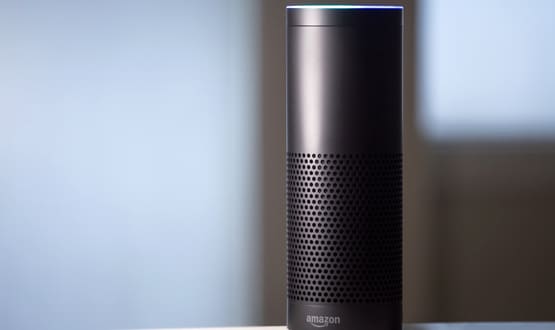Another view of feedback
- 17 September 2014

When my wife and I were picking our holiday this year, we used TripAdvisor. As everybody knows, this is a website dedicated to user reviews of hotels, restaurants, and experiences.
Some people had left very detailed accounts, some brief comments. Some reviews were very superficial; some gave a detailed analysis of everything from check-in to returning.
Often there were one or two bad reviews among a sea of good ones; and we largely ignored these as either the product of a bad day or an overly sensitive reviewer.
Picking our way through this mass of information in an entirely non-standard format, we found it was useful to know what type of person was doing the reviewing.
For example, a 19 year old wanting sex drugs and rock and roll who gives a five star review to a holiday isn’t going to recommend it to me!
Different sites, different approaches
I routinely check Amazon for reviews of items I’m buying. I especially like long term reviews, not just first impressions.
It’s bizarre how different two people can find the same product. Background must play a part in that, but there is very little detail about Amazon’s reviewers in terms of age or interest.
Often, there is just a name. And there is no real way of building up a reputation for anything other than posting a lot of reviews – which may or may not be useful.
EBay has a slightly different system. It builds reputation for sellers and buyers, and I do find that I trust sellers with high positive scores more than I do those with low ones.
The problem is, I always find it difficult to leave a less than perfect score for someone, as I worry they will do the same for me. Although there are 5 stars available for performance on everything from accurate descriptions of items to reasonable postage charges, I suspect most people pick 1 or 5.
In general, I also struggle to understand why people leave reviews. Perhaps it’s just altruism? Perhaps it’s five minutes of fame? Perhaps it’s paying back others for their reviews. It would be interesting to know.
On a website I use a lot when programming, called Stack Overflow, there is all sorts of gamification to address some of these issues. People win points and prizes and badges and reputation and become known for the quality and not just the quantity of their reviews.
As a lot of these guys are freelancers or looking for their next job, having a high reputation can’t hurt.
Dissing complaints
You have already guessed where this is leading me. Patient feedback is, no doubt, important to the health service. But why is it so poor? And why do we largely ignore it as noise from malcontents?
This idea that people complaining aren’t saying anything important is dangerous. To take a non-NHS example, there is a planning crisis here in Cheshire. Local people have the sense that planners can get anything approved. Any objectors get accused of NIMBYism.
However, I noticed that some recent campaigners were trying to argue that a particular development should not go ahead, because the road leading to it was too narrow. A bend was too sharp and blind and accidents would happen. What if they were right? Wasn’t that useful feedback?
Back with the NHS, a colleague told me about her visit to the out-of-hours GP in her area. She commented it was hard to reach, that it was in a poor area of town, with poor lighting, and she felt vulnerable and at risk.
Why, she asked, when all she needed was a prescription for a condition that was easy to diagnose couldn’t she go to a chemist or even to A&E?
I don’t know if she complained. I suspect that if she had it would have been counted as a number rather than actually looked at; but I thought it was great feedback on multiple levels.
The state of feedback it he NHS
I’ve been thinking about the whole issue of anonymous reviews and user complaints recently because I’ve been looking through our NHS Choices reviews with my practice manager.
Some are ok. Some are vitriolic. Now, I know I’m biased, but I think you will struggle to find a better surgery than ours.
I counted yesterday, and almost every patient (out of 40 that I saw) said ‘thank you’, ‘thanks for your time’, ‘thanks for seeing me’, or just ‘thanks doc’. I get one or two complaints a year, even though I see more than 7,000 people.
I know most of the other docs at the practice get the same level of appreciation on the day and the same level of complaints. Yet our reviews would have you believe we are all monsters.
So why the negative reviews online? And why don’t these people complain to the practice manager?
When people say ‘thanks’, I sometimes say I jest: “Can I have that in writing?” And sometimes I get it. This has led me to joke occasionally about creating a website called ‘praisemydoctor.com’.
The problem is I can’t see gamification working to bring in more comments from people who have a real perspective on the service; or at least to tell other users how similar the reviewer is to them in terms of wants and needs.
Who wants to be known as the highest user of a surgery? Prizes might look too much like a bribe. Confidentiality gets in the way (‘that was the best rectal exam I've ever had’).
Time to learn from other sectors?
I’ve had another idea, which is that as well as getting a text reminder pre-consultation about an appointment everybody should get a text post-consultation to ask them 1-10 how it went.
This should be easy and quick to do. That way we might gain thousands of mini-scores, which would have a certain value. But we’d lose the valuable stuff, like the out-of-hours service in an unlit car park story.
I’m interested in your thoughts. How do we encourage constructive feedback about systems and processes, not just individual cases and experiences?
How do we record the good and point out the could-be-better; without just demoralising our staff and labeling all complaining patients as whiners?


Dr Neil Paul
Dr Neil Paul is a full time partner at Sandbach GPs; a large (22,000 patient) practice in semi-rural Cheshire. He is also one of the directors of 4GPs Ltd. Dr Paul has been involved in primary care IT and health service management for more than ten years in various roles, including PEC member and urgent care lead. In his spare time, he writes medical iPhone software and is a keen photographer.




